Monster Magnet - Interview
by Lisa Torem
published: 6 / 11 / 2013
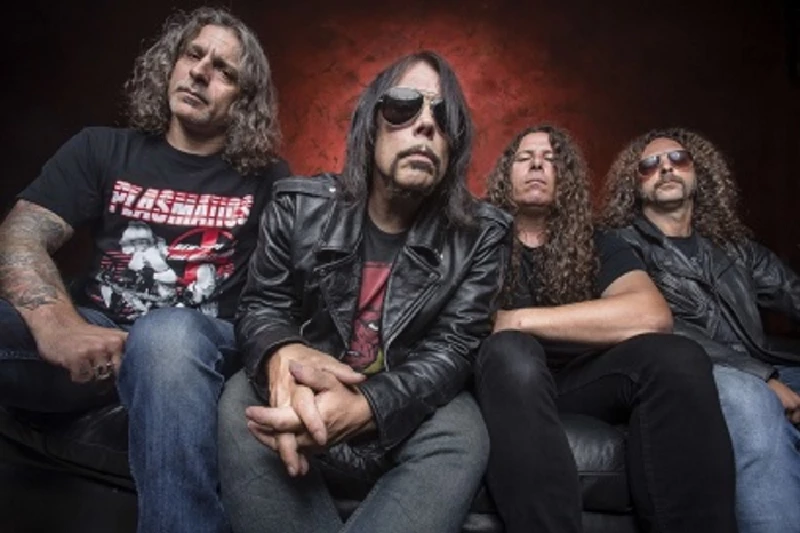
intro
Lisa Torem speaks to Dave Wyndorf from New Jersey-formed rock outfit Monster Magnet about their new album 'Last Patrol' and their decision to tour America for the first time in ten years
The title of Monster Magnet’s latest album, ‘Last Patrol’, might sound apocalyptic – Dave Wyndorf also sings, “satisfy my soul on the other side” on ‘End of Time,’ but the futuristic sci-fi flavoured tracks prove otherwise. Despite line-up changes, their one remaining original member; guitarist, vocalist and songwriter Wyndorf, is not only in great voice, but his imaginative lyrics disclose the most primal human emotions against a backdrop of sexy beats, psychedelic riffs and forceful cinematic images. After a decade away, the band will tour North America. They have enjoyed successful tours in Australia and Europe, but now seemed to be the right time to embrace and reintroduce the style of music they love best back to their native sons. Inspired by early Hawkwind and Black Sabbath, ‘Last Patrol’ also celebrates a long-term personal and professional relationship; Co-producer Phil Caivano performed with Wyndorf in the junior high band, Hard Attack, which later became Shrapnel. Their army fatigues and Vietnam themes attracted major clubs like CBGB’s and label interest. They broke up in the mid 1980s, after which time Wyndorf expanded his writing and guitar skills and joined Dog of Mystery, which later morphed into Monster Magnet. Although 1998 album ‘Powertrip’ launched their commercial trajectory, their post ‘Powertrip’ material has continued to attract a fiercely loyal fanbase. Wyndorf is famous for his stoner rock image; he’s a mass of midnight black hair and menacing leather attire on video, but the Red Bank, New Jersey savant comes across as cerebral, centred and completely present about his career, over the phone. The current video for ‘Mindless Ones’ is devoid of the gyrating girls and sleek gimmickry that marked his earlier career. Wyndorf’s current train of thought is probing and vulnerable: “Brother, can you help me now?/I feel my mind is drifting…” Some say he and the band forged the hardcore punk movement so, I guess, he can finally find himself. When covering Donovan’s ‘Three Kingfishers,’ with its lyrical hook, “I dreamed you were a jewel sitting on a golden crown,” Wyndorf retains the sincere ’66 feel by bringing out the beauty in the sentiment with simple chord changes and soft baritone, but then rapidly plunges into a rabbit hole of hell-raising sonics. Wyndorf’s reverence for what’s classic is visible, as well, in ‘Mindless Ones,’ where shots of skulls and vintage Vox bleed into swirling hippie strobes. Dave Wyndorf discussed the process for writing ‘Last Patrol’, Monster Magnet’s touring plans and our planet’s elusive future, with Pennyblackmusic. PB: I was just watching the video of ‘Mindless Ones’ from ‘Lost Patrol’. It’s a lot different from your earlier videos. DW: There’s going to be two videos off the record, and one of them is going to be, pretty much, totally basic, meaning, “Here’s the band, you haven’t seen the band in awhile,” and it represents a lot of stuff that we use in our light show – those projections and stuff, that’s what we actually use live, and we set that video up and filmed it in the same place that we recorded the album, Long Branch, New Jersey, which I thought was really cool. The name of the studio was Sure Fire. It’s an old school studio, a nice big room so I wanted to shoot the video there as well. We set up all our projections, the stuff that we usually do live and pretty much shot it down and we did it with Tom Sharpley, who is an excellent guy. PB: On this tour, your first North American tour in a decade, are you mixing up big and small venues? DW: Mostly small. We haven’t done the States in a long time and the focus is on the music, so the smaller the better right now. We’ve played bigger places in Europe, but right now in the States I really don’t want to overreach and invite the thing open to half-filled places and gawkers. In fact, I really just want the people that care about our music to be there. PB: Intimate makes sense because the lyrics are so personal on this album. DW: Yeah, they really are. As I get older, they become more and more personal. There’s not as many places to hide as you gain more experience in life, and my tolerance for absolute horseshit becomes very low. I’ve got to say what I feel. That’s all I got. I’m not going to try to reinvent the world; I kind of speak it as it is. Sometimes I feel a little morose and a little downhearted, but it’s actually a very positive experience. PB: I’m hearing a kind of minimalist underlay on the album. In ‘I Look Behind the Clouds’, for example, you’ve got some very earthy lyrics - “I feel like I’m coming apart in this rain” - and there’s this one guitar string coaxing us into the mood. It’s simple, but quite forceful. DW: Thanks for noticing. I’m really into making as much vibe with the least amount of actual necessary music. It causes me to struggle, and it’s good to really pay attention to how much is a word worth and how much is a guitar worth. It has to be worthy. You can’t hide behind a wall of guitars. I like the minimal approach. I like the way guitars sound with one string. On most of that song there aren’t any chords at all. It’s just a couple of strings and combined with the right vocal delivery you can get a lot out of it. I really like working that way. PB: ‘Paradise’ starts out in a similar way, but builds up gradually until it gets really intense. “Stairs lead nowhere and the time is dead.” Such haunting stuff. DW: That was me trying to replicate what I thought was a waking dream. I can’t remember if I actually had this conversation, but it was based on an interaction I had with someone on a long ferry ride from Stockholm, Sweden to Helsinki, Finland. It’s very, very surreal out there in the wintertime. It’s a sixteen-hour ride. There are these little cabins and it’s cold. I met this girl, and we talked, and went back to my cabin, and just had this kind of weird time, and that’s what this song is about; being sleep deprived on the road and jumping back into the circus that is the gigs. Sometimes I think back and say, “Did this really happen?” I mean, I didn’t get any phone numbers. I didn’t exchange any emails. It’s like two ships passing in the night. So, I wanted to sing about it and I thought the music should try to replicate the vibe of a waking dream, some real, psychedelic thing. PB: ‘Three King Fishers’ is a Donovan cover. What attracted you to the song, and how did you work out the arrangement? DW: As I was looking at the songs for ‘Last Patrol’, I wrote about sixteen of them and I was throwing most of them away, thinking, “That doesn’t fit.” I need something that I don’t have already. So, I determined that I needed one authentic sounding mid 60’s psych song, something with that real drippy San Francisco or that early Brit sound, something delicate and pretty. I also needed something like a giant robot shooting laser beams out of his eyes; moronical Black Sabbath killing everybody caveman riff. I needed those two parts. I slept on it, and woke up the next day, and thought about Donovan. ‘Three King Fishers’ is a beautiful haunting psych song, an early primal beginning of psychedelia. I think Donovan did that in ’66. It was one of the first songs that used sitar – all you hear is tablas and sitar in the whole song. At the same time the Stones were starting to do that. So, I started playing the Donovan song just to get a vibe on that kind of thing, and I thought, ”I’m never going to beat this. I wonder if I can just cover it.” So, I started playing it, and pretty soon it just sounded so cool that I decided to turn the amp up and started playing it heavy, and I thought, “I bet I can kill two birds with one stone. I’ll just take the Donovan song, play it as close to how it was originally played, do a one-two punch on it and make it into the giant killer robot,” and it seemed to be fine. This will be like ‘Three King Fishers’ if somebody did it in 1972, as opposed to 1966 and it just problem solved. PB: It sounds like you should have been born at that time. Is there another part of history that appeals to you as well? DW: All of them. It’s just too much fun to play around with something like that. Who wouldn’t want to be in Paris in between the two wars? Who wouldn’t want to be in the 1920s in the United States? Who wouldn’t want to be in the French Renaissance? There are just so many glorious times. PB: And yet you sing so frequently about the future? DW: Because the future is unknown, so you can always put happy stuff onto it. I use outer space and the future a lot in my lyrics because there’s so much promise in them, and there’s mystery as well, and I’ll speak about what could happen. What do you want to happen? Well, it’s possible. PB: Bassist Chris Kosnik (Ex-Atomic Bitchwax – LT) is the newest band member, and Monster Magnet has had several lead guitarists as well as other bass players (Tim Cronin, Joe Calandra and Jim Baglino - LT) prior to Chris. How have the line-up changes influenced the overall sound and style of the band? DW: They always change it somewhat. The man who is running that machine, who is playing that thing – no matter how much I tell him exactly what I want him to do it’s his own style that’s going to come through and that’s a really good thing, but it’s never pushed me off the mission statement -- PB: Which remains… DW: Which remains whatever vision I have for that particular record. So I’ll go, “Well, this is a fist in the air, rock record and the lead should be played like this.” and I’ll use references from all different bands and guitarists that I know or I’ve ever loved. There’s a lot of referencing. Oh, man, fucking AC/DC or Black Sabbath As long as my musicians understand my references, they’re fine. PB: And what were your references for ‘Last Patrol’? DW: A lot of obscure squirrelly stuff. There were a lot of references to old stuff. Obviously, I was covering a Donovan song so you can imagine my references – old Hawkwind, the Stooges, Black Sabbath, but more so bands from around that time that emulated those bands – American bands that emulated British bands, a lot of Alice Cooper, for some reason. PB: I was thinking so much about Alice Cooper when I heard those tracks. DW: That early Alice Cooper stuff never gets enough respect. That was a garage band that elevated themselves up, but they were still a garage band. They were still playing garage rock guitars, and it was really cool. PB: Yeah, well, that’s Detroit. But New Jersey bands have really got a scene. A lot of you guys have worked together; you’ve known each other for years and share band members. DW: I try to keep Monster Magnet as local as I possibly can. It just feels better. PB: Do you feel any rivalry with New York City bands? DW: No, it’s a different world now. There might have been one point in my life, at the height of punk rock, when New York was still pumping out new music but New York really doesn’t do much now. It’s not the same. I guess there’s Brooklyn. But now as far as bands go, it’s anywhere you want to be. PB: You sing about lizards. DW: It just sounds good to say. I like to say lizards. I like to say monkey. Those are fun words to say. PB: Jim Morrison was kind of a lizard guy. DW: He put a higher importance to his use of lizards. I use lizard because it’s fun to say. and I try to keep the tunes conversational and descriptive – I felt like a lizard scampering off a rock. PB: Your touring schedule looks frenetic. You play straight through from Grand Rapids to Minneapolis. You have only one day off before going to Denver. What do you do on that precious day off? DW: Sleep. Either I walk around and check out whatever is going on or sleep the rest of the day. PB: Those are very long days on tour. DW: Yeah. Touring is a completely different dimension than normal life. Being in a touring rock band is like being in a circus. You’re either setting up the tent, juggling the balls or moving on to the next town, so there’s no real stability –your stability is in the process of moving, playing, moving, playing,, so it completely warps your sense of time. I’ve gotten used to it over the years --the thing about rock and roll is you get everything you always wanted when you were a seventeen year old boy, but you only get four hours to do it in and four hours to sleep. So, if you want any kind of real life experience you have to cram that into a small amount of time and get the most out of it, and do it operating on not a lot of sleep. PB: That’s tough. You’re like an emergency room doctor or surgeon. DW: Yeah (Laughs). Like a surgeon on a bus. PB: So, this is your first North American tour in a decade. Is that daunting, exciting? DW: Exciting. It’s been ten years since I’ve decided to take a break from America because I honestly didn’t think they were buying what we had to sell. For a lot of reasons, the accent on live and live culture in the States has gotten warped so much that I just couldn’t see a place for a rock band in particular. Eccentric Monster Magnet. I mean, the whole thing is pretty eccentric and weird. I didn’t see the desire from the middle of the country for sure for that kind of stuff. So, I spent all my time in Europe. It’s a great place to go. PB: Sometimes those audiences are more appreciative. DW: They are. PB: Some fans are saying that ‘Last Patrol’ is the best album since ‘Powertrip'. . DW: Cool. That’s awesome. It’s a great time in my life for someone to say it’s the best album since whatever. I sell a lot of records, so, for me, a body of work is really important. So,for fans to come at this point after all of these records and really like the records more or as much as other records, that’s always a huge compliment. PB: You pulled this album together pretty quickly. DW: Pretty quickly. But recording it, I took my time. It’s a very focused, intense work; a lot more focused and intense than the last two records. So, while the material was written rather quickly, the actual production, the playing of it, took my time. I think the whole record probably took about two months to make. It took longer to make than it took to write. PB: But you came up with the lyrics quickly. DW: The lyrics, yeah, in a week. Except for a couple of songs, the whole kit and caboodle was written in one week. It’s frantic. I don’t know if that’s a good way to work or a bad way to work – I haven’t really decided. All I know is that I’m a horrible procrastinator when it comes to writing important things. You always want to wait for the right time. You don’t want to fuck it up, and you wait for that magic time. Like, I’m inspired! What happens I think with most writers is you realize there is no inspiration. You have to create it, and sometimes you need a deadline to do that. PB: Are you a morning writer or afternoon writer? DW: Morning. PB: What’s the setting? DW: Kitchen. PB: Coffee? DW: Coffee. Lots of it. Completely hit it, right off the bat. PB: Title first, theme first? DW: All the stuff. Themes, titles, all written across a million different pieces of paper, placed out across the counter top across the kitchen table. I look across. “What do I have here? What do I have there?” Condensing lines, moving a line from one song to another until you realize you’re writing the same song. And it’s all culled from different highlighted memories; phrases that I’ve put together throughout the course of a year. So, I’ll make a little bucket of ideas and sometimes I don’t even have to write them down. They’re in there anyway. Then I’ll review the bucket and go, “All right, it’s time to write some songs and listen to some music,” which is really important. Somehow it seems to come together. It’s not very professional, but it seems to work. But then again, it’s not like I’m a Tin Pan Alley songwriter. If it were boy meets girl stuff, it would be one thing. PB: Let’s take one of your lyrics from ‘End of Time’. “I saw this girl and her hair was on fire/A serpent’s head on a body that could send you to war.” Where does that come from? DW: That’s a girl that I met, who I am now living with. PB: Is her hair still on fire? DW: It is. Her hair is on fire. Then I had to stick a lizard in there because it sounded cool. At one point I read something about how a French woman was described – “This was the kind of body that men fought wars for….” I probably heard that fifteen years ago, and it just snapped in my mind. PB: I don’t mean to categorize your sound, but some of the outros on what might be called “space music” really reflect that phrase. How do you work with the band to achieve those otherworldly sounds, especially in the studio? Do you just roll the tape, or is there a format? DW: It’s a format. I’ll kind of feel it out in myself. I’ll just designate that there will be a couple of minutes run off on something. A lot of bands will say, “The song is over,” but I’ll leave the space, sketch out the space. Here’s the body of the song, and then at the end, the outro’s going to be long. Let’s see what happens or let’s build what happens. So, a lot of times I’ll build in exciting parts on drums and teach them to Bob (Pantella, percussionist- LT) or suggest, “How about this?” Now that we know the formal beats of the song, let’s go off those beats. Let’s try to do double, triple, whatever. I’ll go, ”What do you got?” and Bob has got great stuff. Because it’s multitrack and you track this stuff you just can’t put everybody in a room and hope for the best because it would take forever, and it does happen live, but only after weeks and weeks of playing. So, I’m pretty much simulating a spontaneous event. I’m writing a simulated spontaneous event. I listened to enough records when I was a kid to know what I like. So, after I hear that drum track, I get ideas for how I’m going to play the guitar, and I’ll put down a quick scratch to match what I hear in those drums. Then I go over to Phil, who played bass on this record. I go, “Let’s sit down and play some bass and write some bass that will match the excitement of these drums.” There are always crescendos. Here’s the long part and the freak out. Do a bass fantasy. I use that term a lot. Do a bass fantasy, which means just go completely ape shit – because if a drum fill is going crazy it would make sense that the bass would go crazy, too. And sometimes there’s a direction to hold it down. Keep it on the floor. Anything that seems to fit that event that was built by the drums. Sometimes it works great, and sometimes it’s a complete disaster. I put a lot of brainwork into this, more than the last couple of records. I worked harder, and so it seems to have come out better. PB: Leading in to the future, what super power is going to be most needed? DW: Patience. Super patience. With enough patience, we get to see the forest through the trees right now. Our technology, what we do with it and how we interact with it, is where we’re chasing it. We’re chasing the speed of our machines when actually we should just be patient and make our machines operate at the pace that we choose to live. So that’s it, the super power for the future. Nothing spectacular; no walking through walls, no flying. PB: Thank you.
Band Links:-
http://www.philamonjaro.comPicture Gallery:-
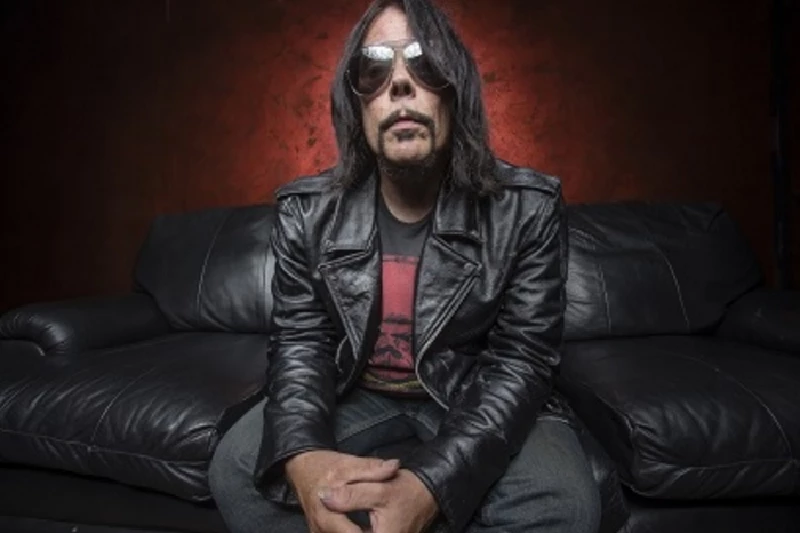
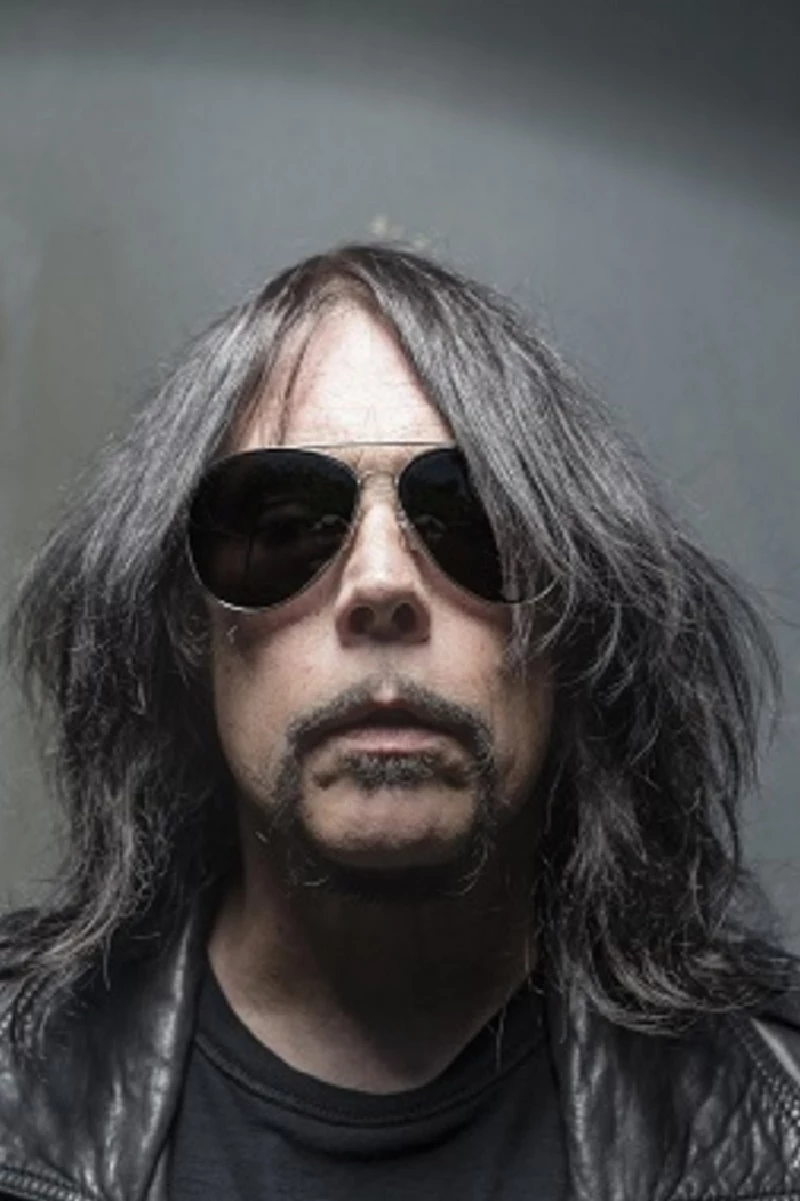
interviews |
|
Interview (2014) |
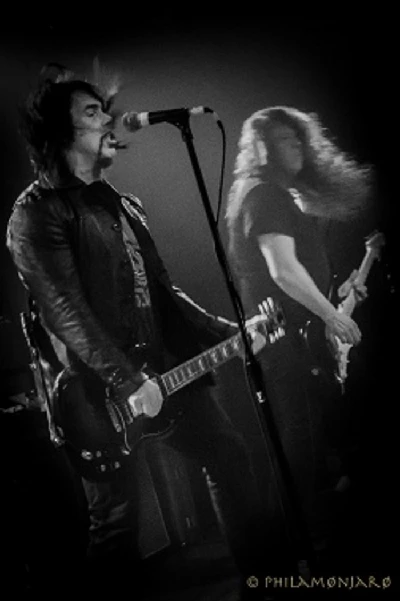
|
| Lisa Torem chats to Dave Wyndorf, the front man with New Jersey rockers, about their new album 'Milking the Stars: A Reimagining of Last Patrol', which features alternative versions of songs from their previous album |
live reviews |
|
Wolverhampton Civic Hall |
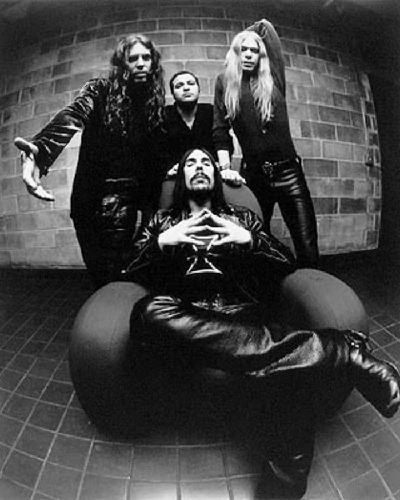
|
| If its classic rock cliché you’re after then there really only is Monster Magnet. They out tap Spinal Tap and they know it, but what’s more, they love it. Leader Dave Wyndorff, now finally sans the ri |
most viewed articles
current edition
Carl Ewens - David Bowie 1964 to 1982 On Track: Every Album, Every SongArmory Show - Interview with Richard Jobson
Colin Blunstone - Thalia Hall, Chicago, 16/7/2025
Bathers - Photoscapes 1
Visor Fest - Valencia, Spain, 26/9/2025...27/9/2025
John McKay - Interview
Billie Eilish - O2 Arena, London, 10/7/2025
Robert Forster - Interview
Sir Tim Rice - Interview
Loft - Interview
previous editions
Heavenly - P.U.N.K. Girl EPManic Street Preachers - (Gig of a Lifetime) Millennium Stadium, Cardiff, December 1999
Beautiful South - Ten Songs That Made Me Love...
Pixies - Ten Songs That Made Me Love...
Oasis - Oasis, Earl's Court, London, 1995
Prolapse - Interview
Trudie Myerscough-Harris - Interview
Paul Clerehugh - Interview
Doris Brendel - Interview
Simon Heavisides - Destiny Stopped Screaming: The Life and Times of Adrian Borland
most viewed reviews
current edition
Sick Man of Europe - The Sick Man of EuropeLucy Spraggan - Other Sides of the Moon
Amy Macdonald - Is This What You've Been Waiting For?
Phew, Erika Kobayashi,, Dieter Moebius - Radium Girls
Davey Woodward - Mumbo in the Jumbo
Bush - I Beat Loneliness
Alice Cooper - The Revenge of Alice Cooper
Blueboy - 2
Cynthia Erivo - I Forgive You
Suzanne Vega - Flying With Angels
Pennyblackmusic Regular Contributors
Adrian Janes
Amanda J. Window
Andrew Twambley
Anthony Dhanendran
Benjamin Howarth
Cila Warncke
Daniel Cressey
Darren Aston
Dastardly
Dave Goodwin
Denzil Watson
Dominic B. Simpson
Eoghan Lyng
Fiona Hutchings
Harry Sherriff
Helen Tipping
Jamie Rowland
John Clarkson
Julie Cruickshank
Kimberly Bright
Lisa Torem
Maarten Schiethart